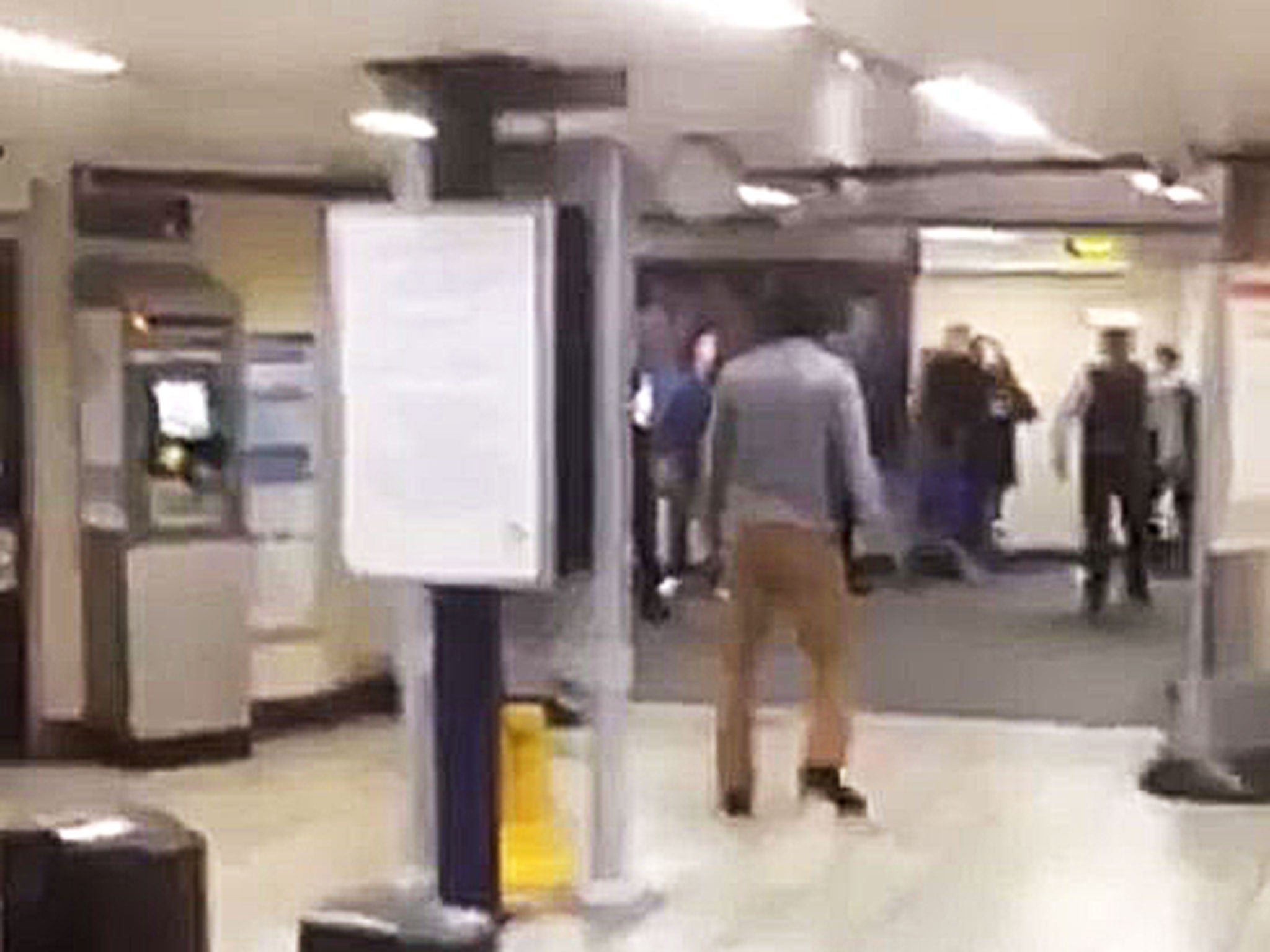Leytonstone knife attack: 'Isis-inspired' Muhiddin Mire convicted of attempted murder after trying to behead stranger
He had images of Lee Rigby and the British Isis executioner Jihadi John on his phone
A man who went on a bloody rampage at a London Tube station has been found guilty of attempting to kill a passerby after being inspired by Isis and the murder of Fusilier Lee Rigby.
Muhiddin Mire tried to behead a musician with a rusty knife and threatened four other commuters as he ran through the ticket hall at Leytonstone station in December.
A jury at the Old Bailey found the 30-year-old, of Sansom Road in Leytonstone, guilty of attempted murder on Wednesday.
He had already admitted four counts of attempted wounding and an alternative count of wounding with intent to cause grievous bodily harm.
The attack was caught on shocking CCTV and mobile phone footage taken by a passerby who carried on filming even as Mire lunged at him with the blade.
An onlooker was heard shouting, “You ain't no Muslim, bruv”, after Mire claimed he was doing it for “my Syrian brothers” and shouted “Allahu Akbar” as police took him down with tasers, sparking nationwide debate.
The court heard that Mire, a taxi driver born in Somalia, had a history of mental illness and that his psychosis involved the belief that he was being persecuted for being a Muslim, and stalked by MI5 and MI6.
He had images of Fusilier Rigby, who was murdered by extremists in 2013, on his phone as well as pictures of Mohammed Emwazi, the British Isis executioner known as Jihadi John, and material linked to the terrorist group.
Mire had travelled on the same Central Line train from Stratford as his victim, Lyle Zimmerman, on 5 December.
He followed him out of the carriage and produced from his pocket a black-handled knife with a serrated edge, pushing the musician to the floor as he approached the barriers.
Mire then kicked him repeatedly around the head and body as a woman nearby called out for him to stop, then crouched down and began to “saw” at his neck with the serrated blade in front of shocked passengers.
Giving evidence from behind a screen, the victim told the jury: “At the time, my subjective impression was that I was being attacked by a crazy person, a mentally unwell person.”
A junior doctor on his way home rushed in to help stem the blood flowing from Mr Zimmerman's neck as Mire went up to street level.
He continued to threaten members of the public, swinging his blade at Daniel Bielinski from Poland, who filmed crucial evidence on his phone.

Mire then lashed out at Serena Valori and David Pethers before coming face to face with Russian security guard Andrius Sabaliauskas, who tried to talk to him.
But despite the efforts to calm him down, Mire tried to slash lift engineer David Pethers before police arrived with tasers.
Mire ran at an officer and the security guard, shouting: “This is for my Syrian brothers; I'm going to spill your blood,” before he was finally subdued.
The court heard that Mire had been referred to mental health services by his GP a month before the attack and had recently started to wear traditional clothes rather than his usual jeans and T-shirt.
No formal link to Isis was uncovered but terrorism specialists at Scotland Yard are warning that the group is deliberately targeting mentally ill people with propaganda.
Commander Dean Haydon, head of the Metropolitan Police Service Counter Terrorism Command, said Isis aims to incite lone wolf attacks by “spontaneous volatile extremists”.

"We're not just talking about mental health here; we're talking about vulnerable individuals within the community,” he said.
"As a result of what I would call inspiration as a result of that propaganda, we are seeing more and more lone actors. Spontaneous volatile extremist is another term.
"Literally people who get inspired through propaganda material, mostly through the internet, and then decide to go off and commit an attack either here in the UK or elsewhere overseas."
Mire's family were also concerned about his mental state and had contacted police, as well as unsuccessfully trying to persuade him to travel back to his native Somalia.
He had no contact with jihadis in Syria, or extremist preachers in the UK, and has not been charged with any terror offences.
Mr Haydon defended Scotland Yard's decision to declare the attack as a terrorist incident on the night it happened.
"This was a random attack, completely unprovoked,” he added. “He wasn't a member of Isis [but] he was inspired by Isis."
Subscribe to Independent Premium to bookmark this article
Want to bookmark your favourite articles and stories to read or reference later? Start your Independent Premium subscription today.

